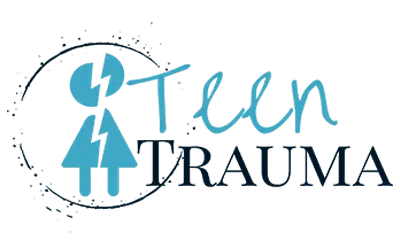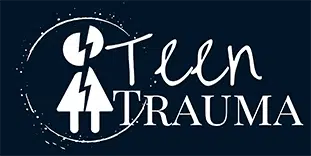Healing Methods for Teen Trafficking Survivors
Navigating the journey to recovery after experiencing the trauma of teen trafficking can be daunting, yet there is hope. As a survivor, your resilience is key to overcoming the past and rebuilding your future. This guide aims to provide practical strategies and support for victims of human trafficking to help you reclaim your life and find the peace you deserve.
Step 1 – Acknowledge Your Experience in the Trafficking Situation
The first crucial step in healing is acknowledging the gravity of your experience, including any involvement in commercial sex, and allowing yourself to grieve. Suppressing your emotions can prolong your recovery.
It’s essential to talk to a counselor who specializes in assisting victims of human trafficking. Consider joining support groups where you can share your experiences in a safe, open environment, receiving support from others who have faced similar challenges.
Step 2 – Rebuild Your Sense of Self-Worth
Rebuilding your self-worth is essential after being a victim in a trafficking situation. Engage in activities that nurture your passions and interests, helping you reconnect with aspects of yourself that were suppressed.
Practice self-care rituals like indulging in hobbies or taking time for reflection. Remind yourself that you are more than your past experiences; you are a resilient individual deserving of love and happiness.
Step 3 – Seek Legal Advice
As you heal, it may be beneficial to seek legal advice to address any lingering issues from your trafficking experience. This might involve pursuing justice against traffickers, securing financial compensation, or navigating complex legal challenges.
Organizations like Alight offer pro-bono legal services to trafficking survivors, providing knowledgeable advocates to help alleviate the burden and empower you to reclaim your rights.
Step 4 – Join a Support Group
Remember, healing is not a linear process, and setbacks are a natural part of recovery. Be patient and compassionate with yourself, and reach out for support when needed.
Over time, with courage and the right resources, you can emerge stronger and ready to embrace a future filled with hope. For further resources, contact a crisis line or support hotline like A Safe Place at 1-800-600-SAFE (7233).
Empower Your Recovery with Self-Care
As we begin the journey of recovery and healing, it’s crucial to recognize the role of daily self-care in building resilience and restoring well-being. To help you incorporate these practices into your routine, we’ve created a special video, ‘4 Essential Daily Self-Care Routines.’
This Reel offers simple, effective strategies that not only enhance your daily life but also empower you to take control of your healing process. We invite you to watch and incorporate these practices as you navigate your path to recovery.
Embrace these self-care routines to strengthen your own resilience and share this Reel with your community to spread awareness about the realities and recovery of teen trafficking survivors. Each share extends the reach of support and information, helping us create a network of empowerment and prevention. Together, we can make a difference. Share this gift of self-care and awareness today!
The Immediate Aftermath of Teen Trafficking
Surviving teen trafficking often leaves victims grappling with a complex web of physical, mental, and social challenges. Traffickers frequently use coercive tactics, including physical, emotional, and psychological abuse, to maintain control.
Understanding these risk factors can help in addressing the immediate needs of survivors, who may suffer from injuries, illnesses, and psychological scars.
Don’t let traffickers prey on teens. Learn the red flags – read our blog on Understanding Teen Trafficking
Physical and Emotional Impact: Understanding Trafficking’s Toll
The trauma of human trafficking can leave lasting scars on both the physical and emotional well-being of victims. From malnourishment and sleep deprivation to chronic pain and infectious diseases, the physical toll is immense.
Emotionally, many survivors face depression, anxiety, and PTSD, often feeling a sense of powerlessness, shame, and betrayal. Recognizing these impacts is crucial as you work toward recovery.
Core Recovery Strategies for Teen Survivors
Professional Counseling and Therapy
Seeking professional psychological support is vital. Different therapeutic approaches, including:
- Cognitive-behavioral therapy (CBT) – equips teens with the tools to challenge negative thought patterns and replace them with more constructive perspectives.
- Trauma-focused therapies like EMDR – helps teens address and process the traumatic memories in a structured, guided manner.
- Family therapy – can also be instrumental, as it facilitates open communication, rebuilds trust, and strengthens the support system around the teen.
Family therapy can also be critical in rebuilding trust and strengthening family connections, providing a support system for the survivor.
Building a Support Network
Establishing a strong network of support from family members, friends, and support groups is crucial. These connections offer emotional, practical, and social assistance, essential for navigating the recovery process. They provide a sense of belonging, unconditional love, and motivation which are vital during challenging times.
Long-Term Healing and Empowerment
Healing from teen trafficking is a deeply personal and transformative journey that requires time, patience, and self-compassion. As you overcome your fears and find the courage to speak up, you’ll unlock a deeper understanding of your own resilience and the power you hold to inspire change.
This process involves reclaiming one’s power and developing inner resources necessary to face life’s challenges with resilience and purpose. The journey to long-term healing and empowerment is challenging but one that ultimately leads to the reclamation of one’s power, the realization of one’s full potential, and the ability to face the future with renewed hope and determination.
Engaging in advocacy and public speaking can also empower survivors, turning their experiences into powerful narratives for change.
Educational and Career Opportunities: Empowering Survivors Through Knowledge
Overcoming barriers to education and career goals is possible with the right support and resources. Tailored educational programs and comprehensive career counseling services help survivors identify their strengths and aspirations, providing pathways to personal and professional growth.
Resources:










